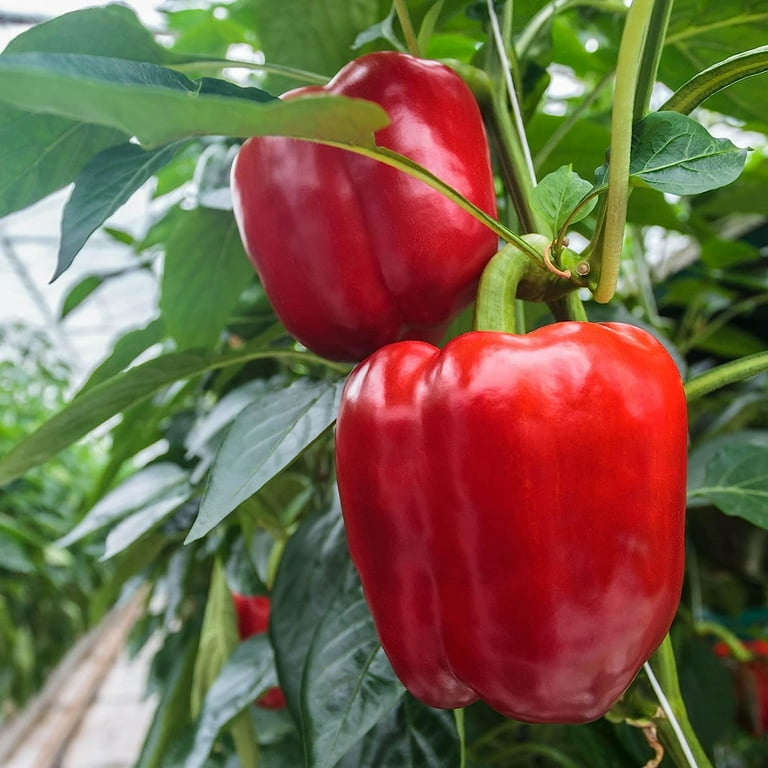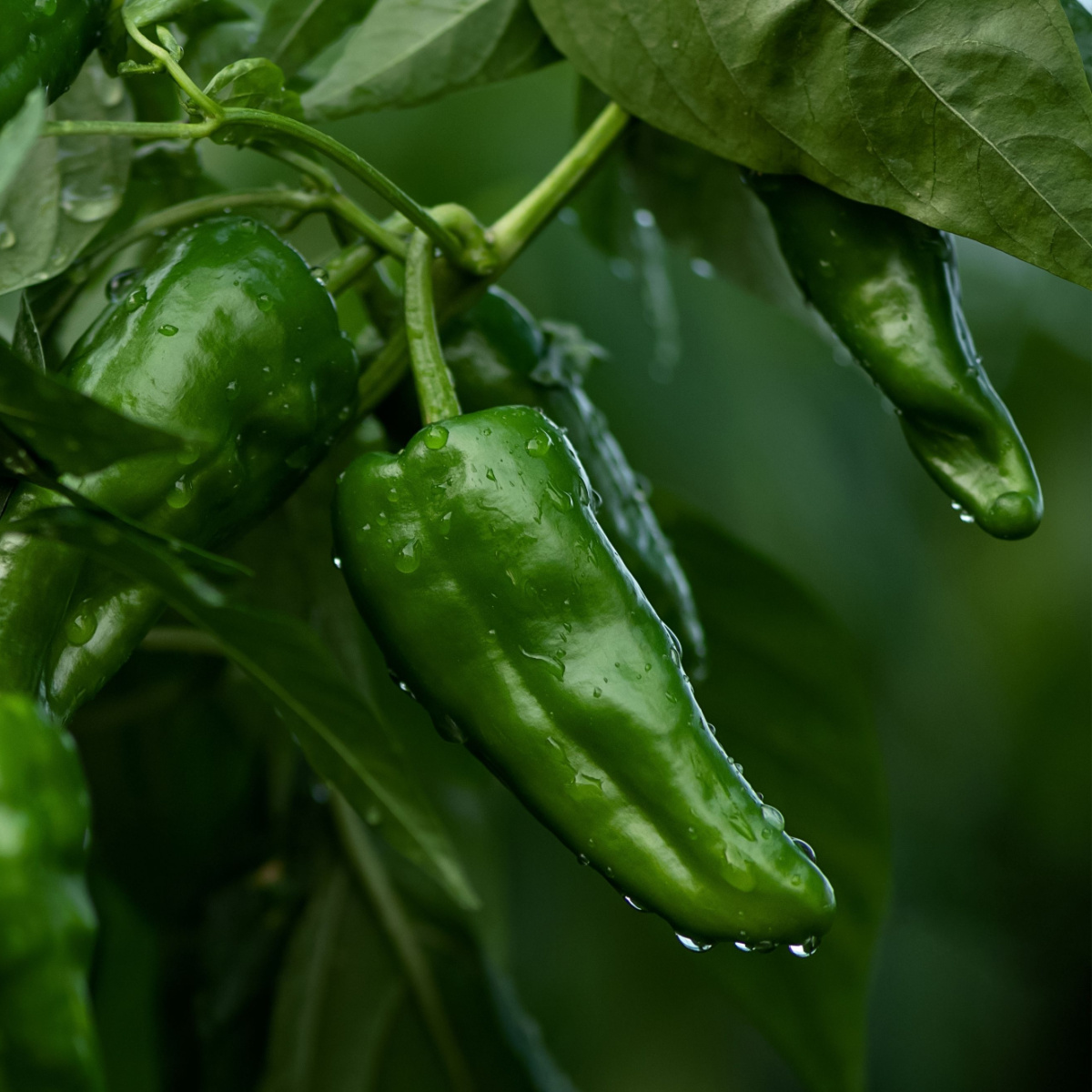Best Fertilizers for Peppers: Make The Most Of Plant Health and Return
Best Fertilizers for Peppers: Make The Most Of Plant Health and Return
Blog Article
Organic Vs. Synthetic Fertilizers: Which Is Best for Supporting Healthy And Balanced Pepper Plants?
In the realm of supporting healthy and balanced pepper plants, the choice between organic and artificial plant foods stands as a pivotal decision with significant implications. While both choices objective to give vital nutrients to sustain plant growth, the nuances of their effect on the dirt, plant health and wellness, and the atmosphere stimulate a debate that mirrors throughout the gardening neighborhood. Understanding the distinctive benefits and potential pitfalls of each fertilizer kind is crucial for pepper farmers seeking to maximize their returns while keeping a sustainable and eco-conscious strategy.
Advantages of Organic Plant Foods
Organic fertilizers provide an environmentally-friendly and sustainable technique to nourishing pepper plants, offering crucial nutrients without the use of artificial chemicals. These natural fertilizers are originated from natural resources such as garden compost, manure, bone meal, and algae, advertising dirt health and wellness and biodiversity. Unlike synthetic fertilizers, organic choices launch nutrients slowly, guaranteeing a balanced and stable supply for pepper plants to prosper.
One substantial advantage of natural plant foods is their ability to improve soil structure and water retention. By enhancing soil health, natural fertilizers advertise helpful microbial activity, which aids in nutrient uptake by pepper plants. In addition, organic fertilizers minimize the threat of chemical run-off, shielding water resources from air pollution and guarding the setting.
In addition, natural fertilizers add to long-term dirt fertility by advertising the development of beneficial dirt organisms. These microorganisms aid break down organic issue, launching nutrients in a form that is conveniently obtainable to pepper plants. best fertilizers for peppers. By cultivating a healthy soil ecological community, organic fertilizers support sustainable pepper cultivation practices that profit both plants and the atmosphere
Downsides of Synthetic Plant Foods
Artificial plant foods, in comparison to their organic equivalents, posture numerous disadvantages when used to nourish pepper plants, affecting both plant wellness and ecological sustainability. One major drawback of artificial plant foods is their tendency to seep nutrients from the dirt swiftly. This quick leaching can result in nutrient imbalances in the dirt, causing plants to experience poisonings or deficiencies. In addition, synthetic fertilizers can harm helpful dirt organisms, such as earthworms and advantageous microorganisms, interfering with the soil community's equilibrium.
Additionally, the overuse of artificial plant foods can add to water pollution. Excess fertilizers not absorbed by plants can get rid of right into water bodies, leading to eutrophication, where algae blooms deplete oxygen levels in the water, harming marine life. Artificial plant foods are generally acquired best site from non-renewable sources, such as fossil fuels, adding to carbon emissions and ecological destruction during their production.
Nutrient Absorption Contrast
When comparing synthetic and natural fertilizers in terms of nutrient absorption, natural plant foods have the benefit of supplying a much more balanced and slow-release source of nutrients. Organic fertilizers have a selection of macro and micronutrients that are not only beneficial for the plants but likewise promote healthy and balanced dirt microbial task, which assists in nutrient uptake.
Moreover, natural fertilizers boost soil structure and water retention capability, allowing pepper plants to gain access to nutrients extra effectively. This enhanced dirt quality promotes root development, enabling better nutrient absorption. Artificial fertilizers, although initially increasing plant growth as a result of their high nutrient focus, may impede long-lasting nutrient absorption by degrading dirt health with time.
Ecological Influence Considerations

On the other hand, artificial fertilizers, although often more concentrated and quickly offered to plants, can have detrimental effects on the setting otherwise used properly (best fertilizers for peppers). Their production requires high power inputs, bring about greenhouse gas emissions and adding to climate adjustment. Furthermore, the overflow of excess synthetic plant foods can contaminate water sources, resulting in eutrophication and hurting aquatic communities.
Finest Fertilizer Practices for Peppers
To achieve this, it is necessary to follow finest fertilizer practices tailored to the particular needs of pepper plants. One critical practice is to perform a dirt test before using any fertilizers.
Another essential technique is to fertilize pepper plants at the best time. Commonly, peppers benefit from getting plant food at planting and after that again when they start to flower. Over-fertilizing can bring about vitamins and mineral imbalances and damage the plants, so it is essential to comply with suggested application prices.
Furthermore, choosing a well balanced fertilizer with an NPK proportion that suits pepper plants' requirements is essential. Inevitably, incorporating Home Page artificial and organic fertilizers carefully can help nurture healthy and balanced pepper plants while decreasing ecological influence.
Verdict

Organic fertilizers supply an environmentally-friendly and lasting strategy to beneficial pepper plants, giving important nutrients without the use of synthetic chemicals. Unlike synthetic fertilizers, organic choices launch nutrients gradually, making certain a constant and well balanced supply for pepper plants to flourish.
Synthetic plant foods, in comparison to their natural counterparts, position numerous drawbacks when used to nurture pepper plants, impacting both plant health and environmental sustainability. When contrasting artificial and organic fertilizers in terms of nutrient absorption, natural fertilizers have the advantage of providing an extra balanced and slow-release source of nutrients.Moreover, organic fertilizers enhance soil structure and water retention capacity, permitting pepper plants to gain access to nutrients more effectively.
Report this page